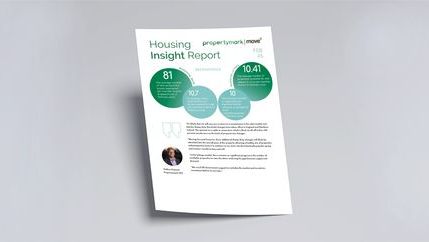Property industry news
Regulations widen the pool of expert ivory assessors
Three new museums are set to join the list of bodies that can advise the Animal and Plant Health Agency on applications for exemption certificates under the Ivory Act 2018. If an owner wants to sell ivory-containing items which were made before 1918 and are of outstandingly high artistic, cultural, or historic value, they must be expertly assessed by recognised institutions.
UK Government pursues stronger powers to tackle tax non-compliance
Plans are afoot to strengthen HMRC (HM Revenue and Customs) to act quickly and robustly against professional tax advisers who help clients avoid paying the correct tax. Propertymark welcomes this because it aligns with our calls to the Treasury, and we support HMRC’s ambition to ensure the financial sector upholds the highest standards and integrity of the tax system.
Four common causes of professional indemnity claims against letting and sales agents
Trust is placed in lettings and sales agents by individuals and businesses who seek expertise, knowledge and attention to detail. With that trust, however, comes risk – and that's why it's essential to consider Professional Indemnity (PI) Insurance. Gallagher, the industry-approved supplier of insurance for Propertymark, offers cover for agency businesses to help protect them from the legal costs involved should a client make a claim against them due to a mistake or incorrect advice.
Trump tariffs and the UK auction market: adapting for the future
US trade tariffs are shifting global auction dynamics, and UK auctioneers are being drawn into the ripple effects of international policy. While these measures are largely designed to protect US industries from Chinese competition, theyâve also had knock-on effects on transatlantic trade, complicating the movement of goods and altering buyer behaviour in ways that UK auction businesses are starting to feel. So, how can UK auctioneers respond with confidence to a changing market?
Housing Insight Report: February 2025
It’s likely that we will now see a return to a normal pace in the sales market now that the Stamp Duty threshold changes have taken effect in England and Northern Ireland. This spurred on a spike in momentum which is likely to tail off in line with previous trends seen on the back of property tax changes.
The CMA takes up the reins of consumer enforcement on 6 April, but what does it mean for property agents?
The Digital Markets, Competition and Consumers Act (DMCC), which passed into law on 24 May 2024, contains provisions to prohibit unfair commercial practices, replacing and updating the Consumer Protection from Unfair Trading Regulations 2008 (the 2008 regulations). The legislation hands direct enforcement powers to the Competition and Markets Authority (CMA), giving them the authority to act on breaches of consumer protection rules, including requirements for providing material information.
Propertymark launches unified logo to build on momentum in consumer awareness
The new logo will be exclusively available to those who take up a new Company Advantage package, signalling to prospective clients that a business has successfully achieved accreditation. In research independently conducted by YouGov, consumers overwhelmingly chose the wording that would make them want to engage and instruct.
900.000 more sole traders and landlords to be swept into Making Tax Digital
The UK Government’s Making Tax Digital (MTD) initiative is transforming how taxes are reported and managed, with significant implications for property agents. Self-employed individuals and landlords earning over £50,000 per year must comply with MTD for Income Tax Self-Assessment (ITSA) from 2026, and those earning over £30,000 from April 2027. In her Spring Statement on 26 March 2025, Chancellor Rachel Reeves, MP, announced that the threshold will decrease to £20,000 in 2028.
Spring Statement reinforces housing as an economic keystone
Chancellor Rachel Reeves has delivered her Spring Statement, outlining the UK Government’s plans for housing, planning, and welfare benefits as part of its broader economic strategy. The Statement was framed as a continuation of the government's existing strategy rather than a full Budget, with no major tax changes and only a limited number of new policies aimed at correcting a gap in public finances.
The real cost of non-compliance: what letting agents can't afford to ignore
Compliance in the UK lettings sector is often treated as a box-ticking exercise. Gas Safety Certificates, EPCs, and Deposit Protection Schemes are the well-known essentials that every agent expects to manage, but the real risks don’t always come with a checklist. Oversights can lead to crippling fines, legal battles, and reputational damage, with the biggest threats often lurking in grey areas of legislation, quiet regulatory changes, and obligations that only become clear when something goes wrong.
£153 million co-ownership funding announced in Northern Ireland
The Department for Communities (DfC) wants to boost homeownership and support 4,000 households purchasing homes over the next four years. The latest funding will also enable 1,200 new builds to expand the much-needed housing options for first-time buyers.
How to avoid complaints in the PRS: six steps for letting agents and landlords
With the Renters’ Rights Bill on the horizon, the private rented sector (PRS) is set for significant change. As part of this, the bill will be introducing an Ombudsman which will hold landlords and letting agents to higher standards of accountability, ensuring tenants have a clear route to escalate disputes. Proactive landlords and agents can take steps now to prevent issues from reaching this stage, saving time, stress, and reputational damage in the process.














